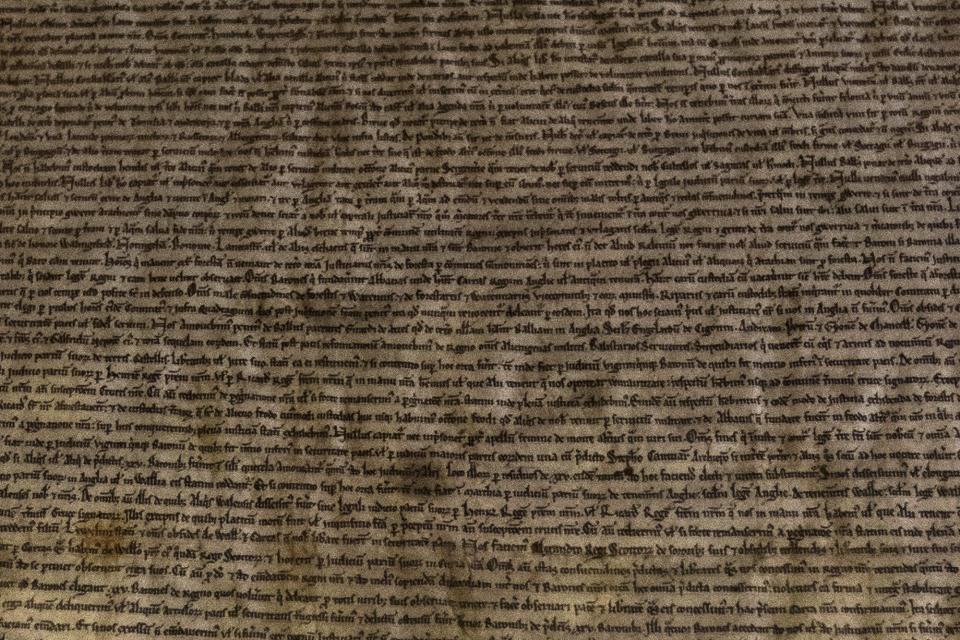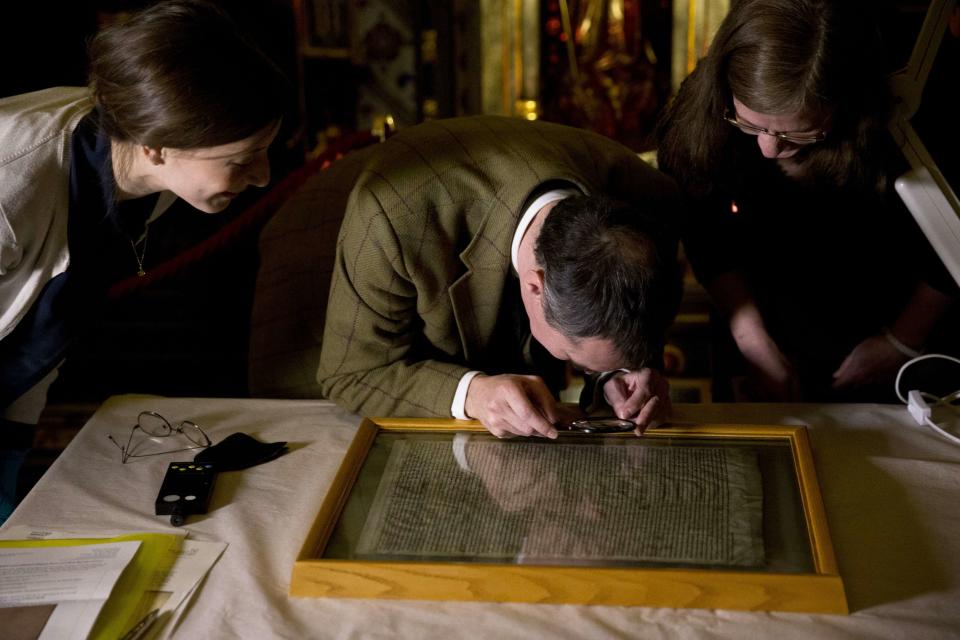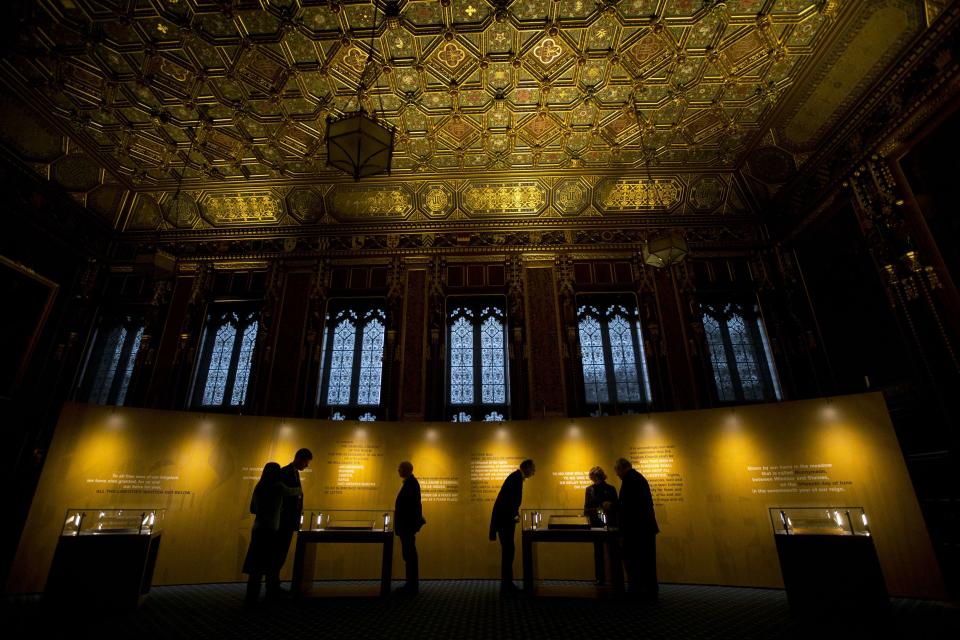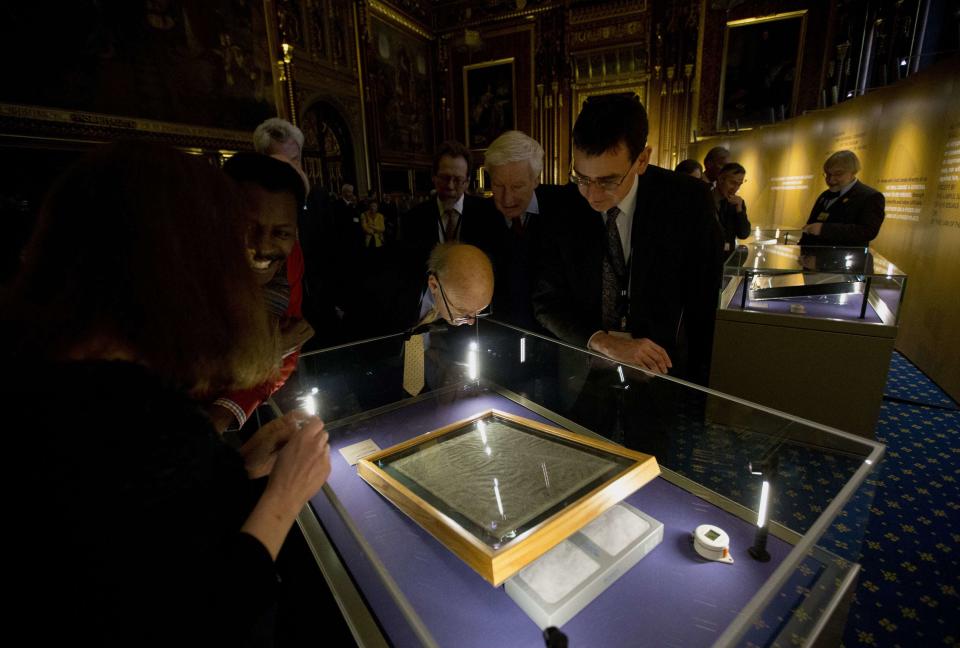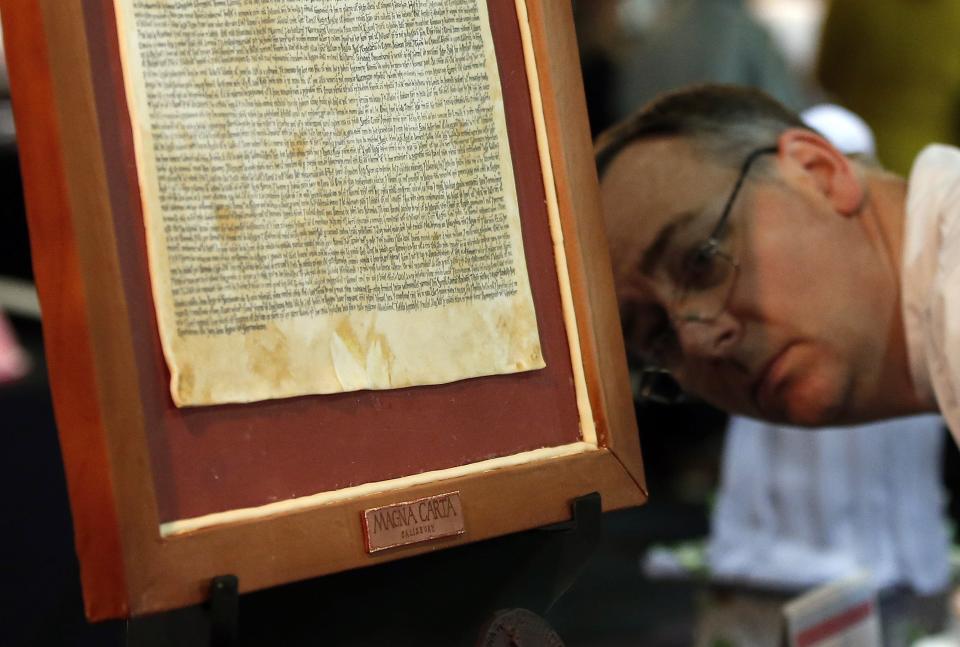Rare version of Magna Carta found in Sandwich, England
Researcher discovers copy of medieval charter by accident
A previously unknown copy of the Magna Carta was accidentally discovered by a researcher in England, officials said Sunday.
According to the Magna Carta Project, Dr. Mark Bateson, the Kent County Council’s community history officer, was in search of another document — the Charter of the Forest — in the Sandwich archives in the town of Maidstone when he discovered a copy of the medieval charter tucked inside a scrapbook compiled by a British Museum official at the end of the 19th century. It is the seventh known copy of the document issued by King Edward I in 1300, and 24th overall.
But researchers say the discovery of the Sandwich charter suggests the 1300 edition was sent to as many as 50 towns and ports — a wider distribution than previously thought.
“If Sandwich had one,” Nicholas Vincent, the project's principal investigator, told the Guardian, “chances are it went out to a lot of other towns, and it is very likely that there are one or two out there somewhere that no one has spotted yet.”
Last week, four other versions of the Magna Carta went on display at the British Library, and were moved later in the week for another appearance at the House of Lords.
Vincent, a professor at the University of East Anglia, said the Sandwich discovery could be worth as much as £10 million (or $15.2 million) but said that the manuscript appears to have been badly damaged by damp conditions, missing about a third of its text and its royal seal.
“This would be an upper value as it has, like the town of Sandwich, suffered over time from French invasions and the like,” Vincent said.
The first Magna Carta, drafted in 1215, established the principle of the rule of law. Subsequent editions were issued to include other rights, including trial by jury, that inspired the U.S. Constitution. The final version of Magna Carta was distributed in 1300 under the king’s seal.
“For 800 years, we have been influenced by its contents,” Lord Speaker Baroness Frances D’Souza said at last week’s exhibition. “It remains one of the most important political documents in the world.”


